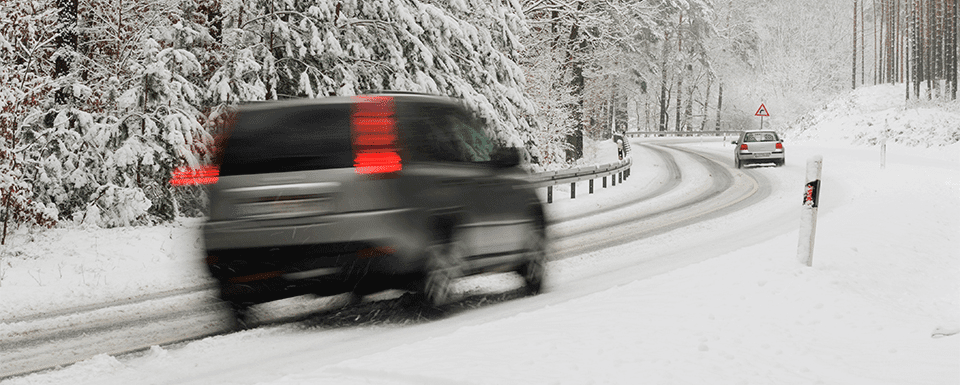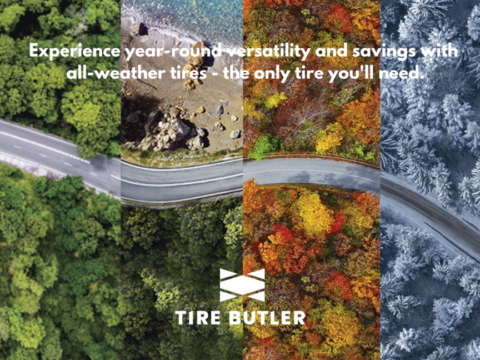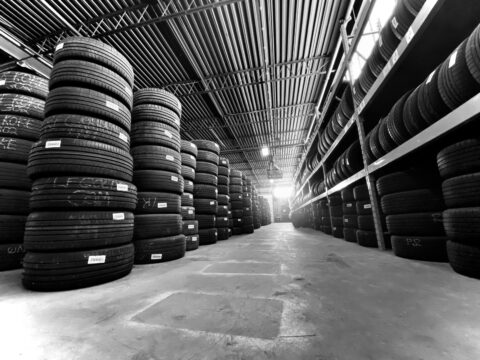It’s an annual, autumnal custom in Toronto.
Thousands of city folk agonize as to whether they should get winter tires now, or if they should await the first signs of snow.
Assuming they opt for winter tires, that is. Thousands more will debate whether it’s worth investing in a pair of new boots for their car at all, or rolling (literally) the dice with all-season rubber.
Ontario isn’t as strict as other parts of Canada when it comes to winter tires – only Quebec mandates that they must be installed by December 15, and kept on until the middle of March. So, it’s up to the discretion of Toronto car owners to determine whether winter tires are a good investment.
To help you decide yay or nay on a winter tire change in Toronto, we offer some insight on winter tires, and whether they’re right for Toronto weather.
Feeling is Believing
The difference between an all-season tire and a specialized winter tire can’t be expressed in writing – you need to feel the difference, and few people ever get to compare the feeling between the two tire types.
All-season tires do provide fair gripping in most conditions, like rain or sleet, but aren’t designed with weather in mind. They’re a ‘compromise’ tire; an all-rounder that’s optimized for long life and strong fuel economy.
The low tread wear and low rolling resistance, expected traits of all-seasons, is the downside for the harder rubber compound, losing pliability as temperatures cool.
Experts recommend getting a winter tire change when temperatures drop to 7C.
“The colder it gets, at a certain point they’ll turn into virtually hockey pucks,” says Barry Yutronkie, Director of Operations for the Tire and Rubber Association of Canada (TRAC). “That’s just cold weather; that’s without factoring in any ice or snow.
“As soon as you have a cold rubber compound on cold pavement, your stopping distances are greater, your cornering isn’t as crisp and precise.”
All-Wheel Drive Will Get You Nowhere
Many winter tire naysayers have likely bought into the fable that all-wheel-drive vehicles don’t need winter tires.
While those AWD systems are designed to provide better traction, they do nothing to improve braking. Remember, it’s the tires that make you stick to the road, not the drive system.
In actuality, when you try to stop or turn on snow or ice, a car with AWD performs no better than a car with two-wheel drive. Again, the limiting factor comes down to the tires.
Marketed as a safety feature, AWD can actually lead to overconfidence and excess speed in the winter, due to the superior acceleration in slippery conditions, which AWD does offer.
But as some experts note, “All-wheel drive lets you have a bigger crash”.
The takeaway here is it’s your tires, not which wheels are utilized on the car, that matter come wintertime.
Why You Need a Winter Tire Change in Toronto
The unpredictable nature of Toronto’s winters ranges from a light dusting of snowflakes, to images similar to The Day After Tomorrow.
Regardless of the forecast, winter tires are a wise investment for Toronto car owners. This especially rings honks true for car owners living just outside the city, where parking on side roads is cumbersome – rarely are the roads plowed, and are always buried in snow.
Additionally, winter tires offer:
Winter Tire Technology – Flexibility determines a tire’s traction. Winter tires are comprised of a unique rubber compound that works best at lower temperatures – below 45-degrees. The elasticity lets the tire conform to the road for a better hold; maintaining flexibility in low temperatures allows the tire to grip more safely.
Unmatched Gripping – Winter tires are built for maximum grip, with unique tread patterns and wider grooves that enhance traction on snow and ice. Winter tire traction can be as much as 25-50% more than all-seasons.
Superior Braking – All-seasons are prone to locking up, or skidding on icy roads. With unmatched gripping, winter tires can really dig in, and responsively break when you need to.
Discount Premiums – To encourage safe driving, Ontario law mandates that insurance companies must give a 5% discount on your policy, if you have four winter tires installed on your vehicle between the dates that your insurance company specifies. (We’ll gladly provide proof of installation with your tires to send to your insurance company upon installation!)
If you’ve finally rolled around and decided to equip your vehicle with winter tires this season, these tips will help make for even safer driving:
- Always install four winter tires, not just the two (we’re looking at you, front-wheel drive owners). Four winter tires will optimize ABS and electronic stability systems.
- Don’t wait for the first snowfall. Unlike the aforementioned city folk, you’re well-versed in winter tire changes. There’s an annual mad rush at dealerships and service centers, meaning long wait times.
- Ensure tires are properly inflated. Tire pressure drops along with the temperature outside; check inflation levels once a month.
- Store your tires correctly. Poor tire storage can lead to unnecessary damage, limiting the lifespan of your tires.
If you’re looking for winter tires in Toronto, Tire Butler offers competitive pricing on the leading winter tire brands including Michelin, Pirelli, Continental, and Bridgestone.
And when you change to winter tires with us, we’ll come to your home or office and change your tires for you at NO EXTRA COST!
Don’t wait for the first snowfall, like thousands of other Toronto car owners will – book a winter tire change today!



